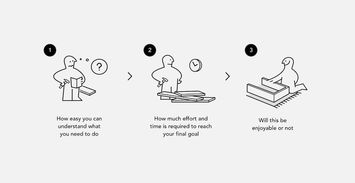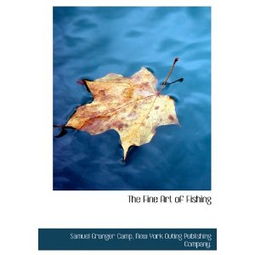When it comes to fishing, one of the most frustrating experiences is when the fish simply refuse to bite. Whether you're a seasoned angler or a beginner, encountering a situation where your bait is ignored can be disheartening. However, there are several strategies and tips you can employ to improve your chances of catching fish, even when they seem uninterested. In this article, we'll delve into some effective fishing techniques and solutions to the common problem of fish not biting.
Understanding the Reasons
Before we dive into the solutions, it's crucial to understand why fish might not be biting. Here are some common reasons:
- Incorrect Bait Selection: Fish might not be interested in the type of bait you're using. It's important to match the bait to the species and the forage they are naturally attracted to.
- Inadequate Presentation: Even if the bait is correct, if it's not presented in an appealing way, fish might ignore it.
- Weather Conditions: Wind, rain, temperature, and cloud cover can all affect fish behavior.
- Water Conditions: The clarity, temperature, and pH level of the water can impact fish activity.
- Time of Day: Fish are most active during certain times of the day, and catching them at the wrong time can lead to frustration.
Strategies to Boost Your Chances
Adjust Your Bait Selection: If you're not getting bites, try changing your bait. For instance, if you're fishing for bass, switch from a plastic worm to a crayfish or a spinnerbait. Observe what other anglers are catching and consider mimicking their success.
Improve Your Presentation: Work on your casting technique to ensure your bait lands softly. For lure fishing, vary your retrieve speed and retrieve type (e.g., twitch, crawl, or shake) to mimic the natural movement of prey.
Use the Right Equipment: Make sure your line, lure, and rod are appropriate for the species you're targeting. A heavy-duty setup for a big fish might spook smaller fish.

Consider the Weather: Fish often bite better during overcast days or during windier conditions. Adjust your schedule to fish during these times if possible.
Adjust to Water Conditions: If the water is murky, opt for brighter lures that stand out. In clear water, consider using darker or more natural colors.
Fish the Right Times: Study the feeding patterns of the fish you're targeting. Many species are most active at dawn and dusk. However, some species may be more active during the day.
Advanced Techniques
Change Your Location: If one spot isn't producing, move to another. Fish can be highly selective about where they feed, and sometimes just a few feet can make a difference.
Adjust Your Approach: Sometimes, changing your approach can trigger a bite. This could mean fishing different depths, trying different types of cover, or even using a different lure presentation technique.
Use a Variety of Lures: Carry a range of lures to cover various situations. Some days, a particular type of lure might work wonders, while other days, you'll need to switch it up.
Observe Other Anglers: Pay attention to what other anglers are doing. Sometimes, they might be catching fish with a technique or lure you haven't tried.
Patience and Persistence: Remember that fishing is often about patience. Stick with it, and don't get discouraged if the fish aren't biting right away.
Final Thoughts
When fish aren't biting, it can be a challenging and sometimes frustrating experience. However, by understanding the reasons behind their reluctance and employing the right strategies, you can improve your chances of success. Remember to adapt to the conditions, experiment with different techniques, and be patient. With persistence and the right approach, you'll be able to overcome the challenge and enjoy a successful fishing trip.
Whether you're targeting bass, trout, or any other species, the key to overcoming the problem of fish not biting lies in being adaptable and persistent. Keep learning, keep experimenting, and eventually, you'll find the combination that works for you. Happy fishing!












